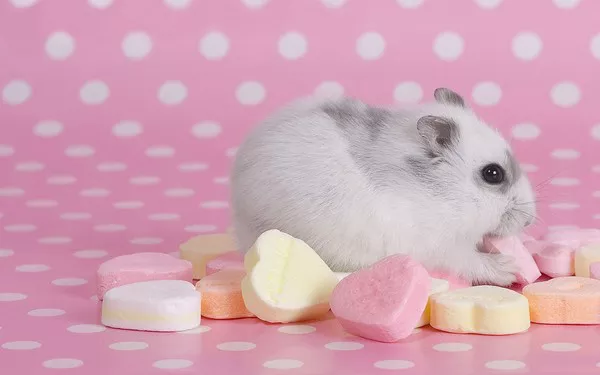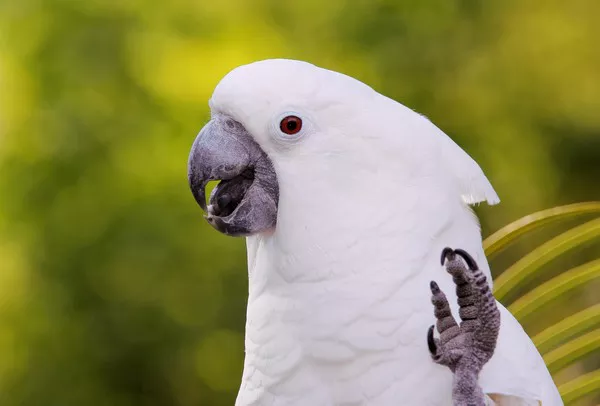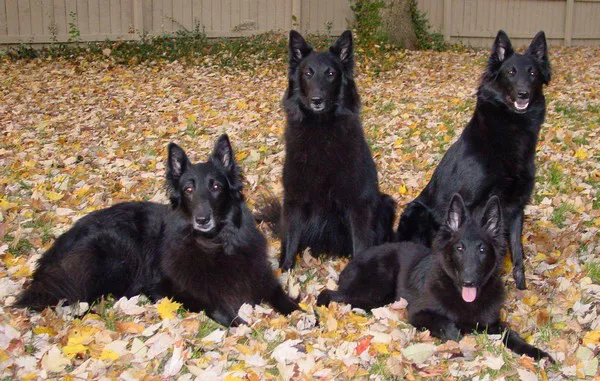Guinea pigs, also known as cavies, are popular pets due to their gentle nature, ease of care, and endearing personalities. These small rodents are native to the Andean region of South America, where they were domesticated by indigenous cultures. Guinea pigs are social animals and are often kept in pairs or small groups. They are also known for their adorable appearance, with their short fur, round bodies, and large, expressive eyes.
One question that many pet owners and prospective guinea pig owners ask is whether guinea pigs are omnivores. The answer to this question is more complex than it might initially seem. Guinea pigs are herbivores, not omnivores, and their diet and nutritional needs are quite specific. Understanding their dietary requirements is crucial to ensuring their health and well-being.
This article will explore the feeding habits of guinea pigs, what they eat in the wild, and how their diet differs from that of omnivores. We will also discuss how to properly feed guinea pigs in captivity, the nutrients they need, and the consequences of feeding them an inappropriate diet.
What Are Omnivores?
Before we delve into the specific dietary needs of guinea pigs, it is important to understand what it means to be an omnivore. Omnivores are animals that have the ability to consume and digest both plant and animal-based foods. Humans, bears, and many species of birds are examples of omnivores. These animals have digestive systems that are equipped to process a wide variety of foods, including meat, vegetables, fruits, and grains.
Omnivores are opportunistic feeders, meaning that they will eat whatever food is available to them. Their teeth and digestive systems are adapted to process both plant material and animal protein. Omnivores typically have molars that are capable of grinding and breaking down plant matter, as well as incisors or canines for cutting meat. Their digestive tracts are also capable of handling a range of food types, allowing them to obtain the necessary nutrients from both animal and plant sources.
Guinea Pigs: Herbivores, Not Omnivores
Guinea pigs are herbivores, which means that they eat only plant-based foods. Unlike omnivores, guinea pigs do not consume animal products in their natural diet. Their digestive system is designed to process plant material, such as grasses, fruits, vegetables, and leaves. This diet is rich in fiber, which is essential for maintaining the proper function of their digestive system.
In the wild, guinea pigs primarily eat grasses, plants, and other vegetation. They are known to graze throughout the day, foraging for food in the grasslands and forests of their native habitat. Guinea pigs have a unique digestive system that allows them to break down tough plant fibers and extract the necessary nutrients from plant material. However, their digestive system is not capable of processing animal protein, and they do not have the enzymes required to digest meat or other animal products.
Guinea pigs have a cecum, which is an important part of their digestive system. The cecum is a specialized organ where bacteria break down fiber and other complex carbohydrates from plant material. This process, known as fermentation, produces essential nutrients, such as short-chain fatty acids, which guinea pigs can absorb. This ability to ferment plant material is why guinea pigs need a high-fiber diet to stay healthy.
Dietary Requirements of Guinea Pigs
To maintain optimal health, guinea pigs require a balanced diet that provides the necessary nutrients for their growth, energy, and overall well-being. Unlike omnivores, guinea pigs cannot obtain essential nutrients from animal sources, so they rely entirely on plant-based foods. Their diet must include the following:
1. Hay
Hay is the most important component of a guinea pig’s diet. It should be available to them at all times. Guinea pigs primarily eat hay, which provides the essential fiber they need to maintain proper digestion. Timothy hay, meadow hay, and other grass hays are ideal for guinea pigs. Hay helps to wear down their continuously growing teeth and keeps their digestive system functioning properly.
There are several types of hay available, and it is essential to choose the right one for your guinea pig’s age and health. For example, adult guinea pigs should be fed primarily timothy hay, while young guinea pigs may need a hay that is higher in protein and calcium.
2. Fresh Vegetables and Fruits
In addition to hay, guinea pigs also require fresh vegetables and fruits to provide essential vitamins and minerals. Guinea pigs need a good source of vitamin C, as they cannot produce it themselves, and they require it to prevent scurvy. Many vegetables are rich in vitamin C, including bell peppers, leafy greens, and carrots.
Guinea pigs should be given a variety of vegetables, including dark leafy greens such as kale, spinach, and romaine lettuce. Other vegetables, such as cucumbers, zucchinis, and carrots, are also good choices. Fruits, such as apples, strawberries, and oranges, can be given as treats, but they should only make up a small portion of the diet due to their high sugar content.
3. Pellets
While hay and vegetables are the primary components of a guinea pig’s diet, pellets can also be offered to provide a more balanced nutritional profile. Guinea pig pellets are typically made from hay, grains, and added vitamins and minerals. Pellets that are high in fiber and low in calcium are ideal for adult guinea pigs. However, it is important not to rely solely on pellets, as they should only make up a small portion of their overall diet.
4. Water
Guinea pigs must always have access to fresh, clean water. Water is essential for maintaining hydration, supporting digestion, and keeping the kidneys functioning properly. Guinea pigs drink a lot of water, and it is important to ensure that they have a clean water bottle or bowl available at all times.
5. Avoiding Harmful Foods
Some foods that are safe for omnivores are toxic to guinea pigs and should be avoided. These include:
- Animal products: Guinea pigs cannot digest meat, eggs, or dairy. Feeding them animal products can lead to serious health issues, including gastrointestinal problems and malnutrition.
- High-calcium foods: Excess calcium can lead to bladder stones and kidney problems in guinea pigs. Foods such as spinach and parsley should be fed in moderation, especially to adult guinea pigs.
- Sugary foods: Guinea pigs should not be given sugary treats, as this can lead to obesity and other health problems. This includes sugary fruits, as well as processed foods.
The Digestive System of Guinea Pigs
The digestive system of guinea pigs is specifically adapted to handle a diet of plant material. They have four main digestive organs: the stomach, small intestine, large intestine, and cecum.
- Stomach: The guinea pig’s stomach is simple, as it does not need to digest animal proteins. It is responsible for breaking down food using digestive enzymes and acids.
- Small intestine: The small intestine absorbs nutrients from digested food and delivers them to the bloodstream.
- Large intestine: The large intestine absorbs water and electrolytes from the remaining food matter. It is also where some bacteria help break down fibrous plant material.
- Cecum: The cecum is a large fermentation chamber where bacteria and other microorganisms break down fibrous plant material and produce short-chain fatty acids. This process is essential for guinea pigs’ health.
Guinea pigs rely on their cecum to extract the necessary nutrients from plant material. This is why fiber is so important in their diet, as it ensures the proper functioning of their cecum and prevents digestive problems.
Consequences of Feeding Guinea Pigs an Omnivore Diet
While guinea pigs are herbivores, some pet owners may mistakenly offer them foods intended for omnivores. Feeding guinea pigs a diet that includes meat, dairy, or other animal-based products can cause serious health problems.
- Gastrointestinal Distress: Guinea pigs have a delicate digestive system that is specifically designed for plant material. Feeding them animal products can disrupt their digestive processes, leading to bloating, diarrhea, and other gastrointestinal issues.
- Nutritional Deficiencies: Omnivores have different nutritional needs than herbivores. Guinea pigs do not require animal protein, and feeding them meat or dairy can upset the balance of their diet, potentially leading to deficiencies in vital nutrients such as vitamin C.
- Obesity: Guinea pigs are prone to obesity, and feeding them sugary or fatty foods can exacerbate this issue. An improper diet can lead to weight gain, which in turn increases the risk of other health problems, such as heart disease and diabetes.
- Bladder Stones: A diet high in calcium, which is often found in dairy products and certain vegetables, can lead to the formation of bladder stones. These can cause pain, urinary tract infections, and, in severe cases, require surgery.
Conclusion
Guinea pigs are herbivores, not omnivores, and their diet should consist primarily of hay, fresh vegetables, fruits, and a small amount of guinea pig pellets. They do not require animal protein, and feeding them foods meant for omnivores can lead to serious health issues. It is important to understand the unique dietary needs of guinea pigs to ensure they receive the proper nutrition and live long, healthy lives.
By providing a diet that is rich in fiber, vitamin C, and other essential nutrients, pet owners can help their guinea pigs thrive. With proper care and attention to their dietary needs, guinea pigs can make wonderful and healthy companions for years to come.
Related Topics:





















